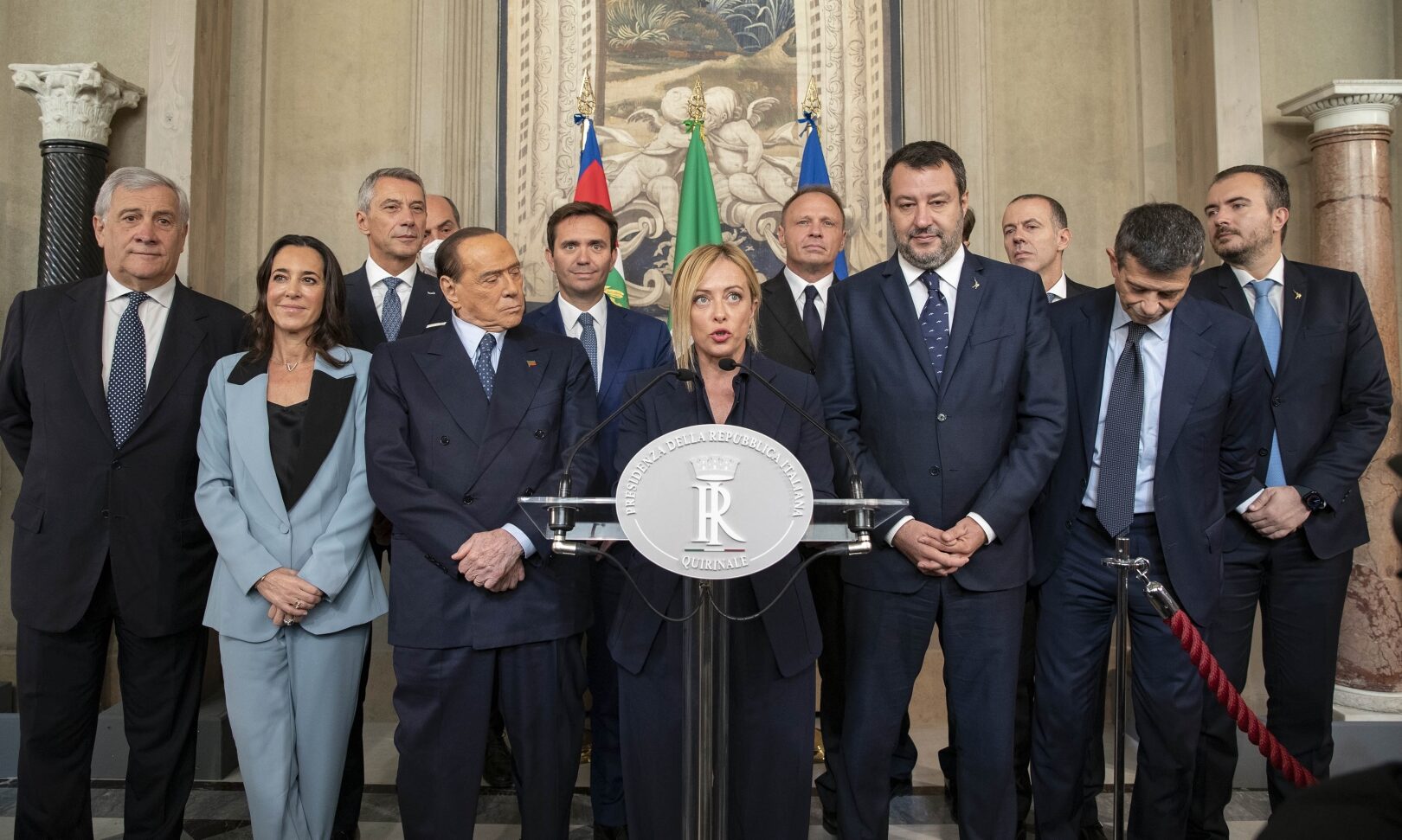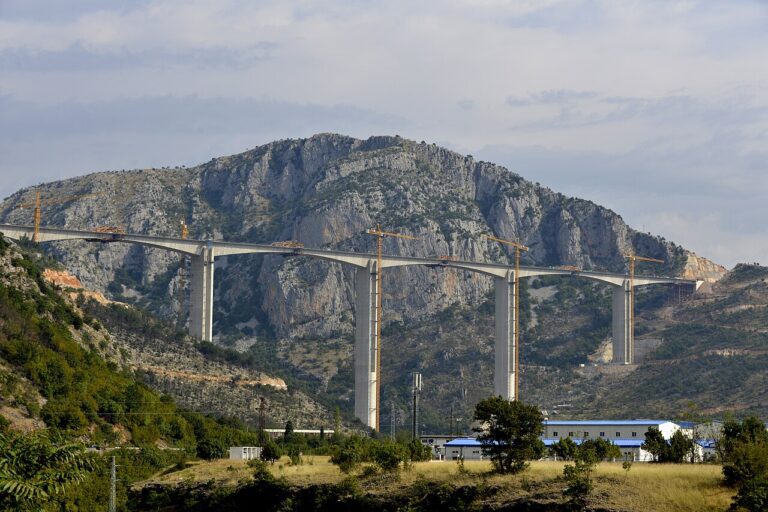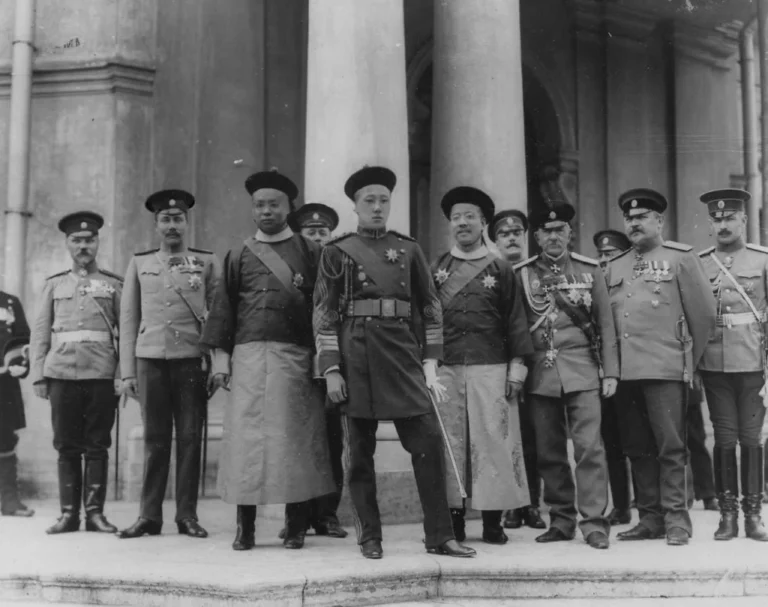
The government of Georgia Meloni in Italy has to decide whether to upgrade its relationship with Taiwan as it reconsiders ties with China.
Over the last year, the Taiwan issue has emerged prominently on the Italian political scene for the first time. Bilateral economic relations between Rome and Taipei are growing. In 2021, the total trade exchange between the two reached $5.57 billion with a growth rate of 30.6 percent. At the same time, Taiwan is receiving increasing political interest.
Last September, Brothers of Italy (FdI) – the conservative and nationalist party led by Giorgia Meloni – won the Italian parliamentary elections and formed a coalition government with Matteo Salvini’s League and Silvio Berlusconi’s Forza Italia. Despite the three parties’ diverse track record and preferences on China, Meloni’s government is seeking to merge the key economic ties with Beijing, worth almost $70 billion in 2022, with an audacious value-based Taiwan policy.
Italy’s New Taiwan Policy
Consistent with the general European weak commitment to Asian security, Italy has traditionally looked at East Asia from a mercantilist point of view. Therefore, Italy, like Germany, had been on the front line in promoting the EU’s engagement with China, even going so far as to propose to lift the arms embargo in force since 1989. Things only began to change in the last couple of years with the deterioration of China’s relations with the West.
During the recent electoral campaign, Meloni was very vocal in expressing support for Taiwan. Just a few days before her electoral victory, in an interview with Taiwan’s Central News Agency (CNA) – the first one by an Italian leading political figure in decades – Meloni defined the island as “a strategic commercial partner for Italy and Europe,” and firmly condemned Chinese military activities in the Taiwan Strait last August.
Meloni has always been very critical of the Chinese Communist Party (CCP). As Italy’s sports minister in 2008, she called for the boycott of the Beijing Olympics. Recently, she repeatedly said she does not intend to renew in 2024 the Memorandum of Understanding on the Belt and Road Initiative, signed by the first Conte government in 2019.
In July last year, Giorgia Meloni also met with Andrea Sing-ying Lee, at the time the head of the Taiwan representative office in Rome, and addressed him as “the ambassador of Taiwan.” During the meeting, Meloni promised both to promote Italy-Taiwan relations and to play a positive role in advancing wider EU-Taiwan ties.
While these statements could be dismissed as mere rhetoric, they carry great symbolic significance and could be followed by more tangible actions. Without a doubt, they represent the most pro-Taiwan stance ever adopted by an Italian government.
What is behind Meloni government’s unique position? Unlike previous governments, Giorgia Meloni holds a wide and secure parliamentary majority. The Conte governments (2019-2021), led by the anti-establishment Five Star Movement, adopted a generally friendly position towards China while the Draghi government (2021-2022) tried to follow a firm Atlanticism line but was dependent on a heterogenous coalition which included parties that supported closer links with Beijing. A wide conservative majority gives Meloni significant leeway to take unprecedented steps regarding Italy’s policy towards China and Taiwan.
Italy’s Foreign Minister, Antonio Tajani, has recently stated that Rome “is aligned with the EU and NATO in its commitment to maintaining the status quo in the Indo-Pacific and in the Taiwan Strait.” “Taipei must remain as it is” he added, while he warned that “China is a strategic competitor, we have different interests.” In this sense, the Meloni government’s approach to China walks in the steps of the former Italian prime minister Mario Draghi who following the 2021 G7 Summit described China as “an autocracy that does not adhere to multilateral rules and does not share the same vision of the world that the democracies have.” Moreover, Draghi’s government repeatedly used the so-called “golden powers” to block Chinese acquisitions of Italian companies in strategic sectors.
Meloni’s policy is also aimed at showing Washington and the EU that she could be a reliable partner in foreign policy and that Italy’s Atlanticism line is not under question. The meeting between the US Under Secretary of State, Wendy Sherman, and Tajani last December, in which they agreed on the need to oppose any “unilateral efforts to change the status quo in the Taiwan Strait,” further demonstrates how Taiwan became a new topic on the Italy-US bilateral agenda.
A Paper Tiger Policy?
How enduring can such a Taiwan policy be? It is difficult to say.
The new Italian government is trying to develop a distinctive and unique Taiwan strategy. A policy that would represent a novel feature in Italy’s foreign policy and symbolize a revolutionary change in Italy’s approach to China: while mercantilist interests are still present and important, they are joined by ideological considerations and a value-based approach that approximates Rome to Taipei. The strategy of engagement at all costs toward Beijing may be over.
Nonetheless, Italian economic lobbies, traditionally interested in having profitable economic ties with China, will try to promote mutual trade and investments, pressure the Meloni government to moderate its positions, and put aside its pro-Taiwan rhetoric. In contrast with Germany where large corporations play the key role, small and medium enterprises have always been the determining factors in the development of Italy-China relations. Furthermore, the Vatican, which has always exerted a degree of influence on Italian politics, is interested in having a dialogue with Chinese authorities. Despite being one of the few remaining states in the world that recognizes Taiwan as the sole representative of China, the Holy See recently seemed eager to cater to CCP’s interests and could represent an additional mitigating factor on Meloni’s rhetoric and actions.
Indeed, when Meloni met Xi Jinping during the Bali G-20 summit in November 2022, they discussed mainly “mutual economic interests,” including the sale of 250 civilian aircraft to Beijing. Economic ties were also the central theme of Foreign Minister Wang Yi’s visit to Rome in mid-February, who engaged in intensive talks with Tajani and the President of the Republic, Sergio Mattarella, about Italian exports to China and Italian firms’ access to the Chinese market.
Italy’s Taiwan policy, which puts unprecedented emphasis on the island, is being implemented but could be stopped and easily go back to being a traditional economic-driven strategy that downgrades voiced support for Taipei in fear of angering Beijing.
Italy and EU-Taiwan Relations
Regardless of the bumpy road ahead, Rome could in fact exert an effective influence on upgrading the EU’s ties with Taiwan. Economic relations between the two have witnessed a strong boost in the last years and the EU wants to further expand cooperation. Potential supply chain disruptions shed new light on the important role Taiwan plays in high technology, especially in the semiconductor industry. Moreover, the European Parliament and the EU High Representative, Josep Borrell, have declared on multiple occasions their willingness to pursue a “comprehensive and enhanced partnership” with the island based on shared democratic values, and have strongly condemned Chinese “military belligerence” in the Taiwan Strait.
Italy could assume a central and dynamic role by continuing to join the US and the EU in providing support to Taiwan, with words, but especially with actions. Concrete moves aimed at enhancing ties and cooperation with Taipei could lead Rome to become Taiwan’s main European partner. With its robust position on the domestic political scene and a stable international environment, Meloni’s government could promote an upgrade of political cooperation and economic and technological ties. In 2022, the collaboration between Italian and Taiwanese firms grew significantly in many sectors, from the automotive and electric vehicles industry to computer science and cultural exchanges.
Delegations of Italian parliamentarians could soon visit Taiwan. A group of League’s parliamentarians already visited Taiwan in 2019, and lawmakers across party lines launched the Taiwan-Italy Inter-Parliamentary Amity Association in October 2022. Indeed, support for Taiwan enjoys cross-party approval in Italy’s parliament. The Italian Chamber of Deputies presented a motion in March 2022 urging the Italian government to place more importance on the situation in the Taiwan Strait.
Taiwan represents a valid test for Italy’s ambitions on the global stage. Rome could play a significant role in preserving deterrence, improving communication, and reducing the risk of escalation in the Taiwan Strait, while showing at the same time its commitment to the defense and promotion of democratic values and freedoms.
Written by
Michael Malinconi
MikemalinconiMichael Malinconi is Research Assistant Intern at Carnegie China. Previously, he worked at the Elcano Royal Institute and studied International Affairs at Johns Hopkins University School of Advanced International Studies (SAIS). His research interests include Taiwan's foreign policy and domestic politics, as well as US-China and EU-China relations.


